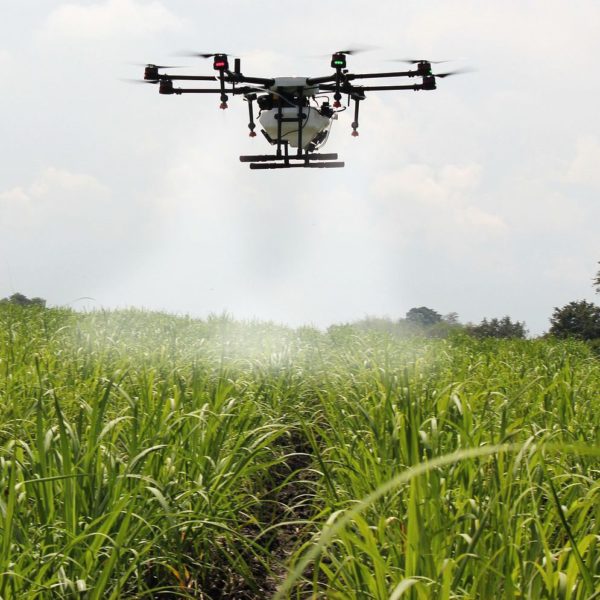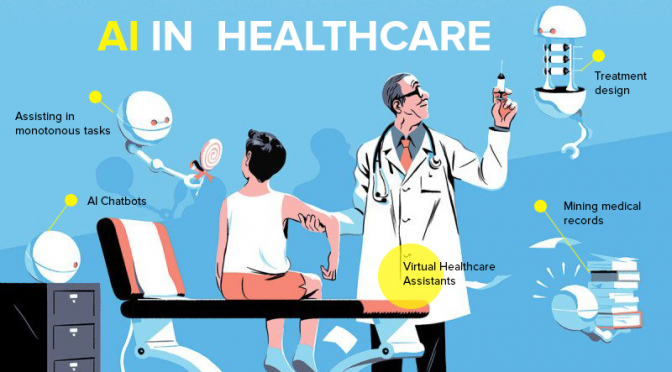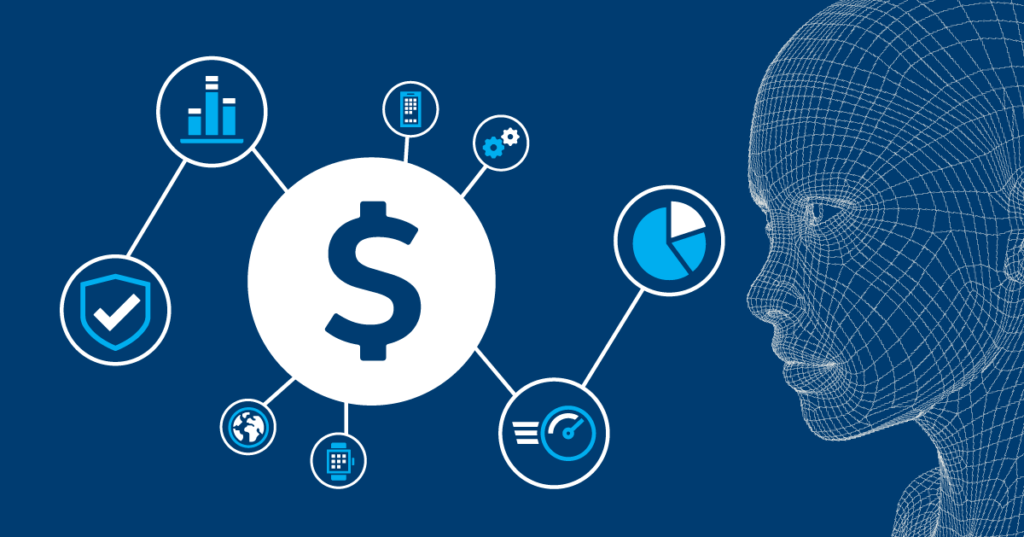
Artificial intelligence (AI) has been around for some time but it’s until recently that it became famous as it inspires hope among some people but also causes immense worry among others. It is no doubt that artificial intelligence is transforming people’s lives and disrupting various economic sectors around the world and Kenya is not left behind. Artificial intelligence is transforming the global industrial landscape by adding value to different businesses. The effect of AI has been felt in different sectors including logistics, transportation, healthcare, industrial manufacturing, and finance. AI-powered technologies are slowly finding their ways into the Kenya market in an attempt to identify a niche, establish and grow in the country. Companies like UTU which apply machine learning to create trust infrastructure are rapidly growing in the market. UTU is targeting different platforms like taxi-hailing apps e.g Taxify, Uber, and Little Cab to bridge the trust gap between the service provider and the customer.
The Kenyan government has joined the bandwagon in embracing Artificial Intelligence and Blockchain technologies. At the beginning of 2018, the government through its ICT ministry set up a task force to develop a strategy for encouraging the adoption of Blockchain and AI in Kenya. According to the ICT ministry, the task force would consist of AI and blockchain experts, researchers, startups, regulatory bodies, local ICT experts, lawyers, and corporate representatives to drive the initiative. With support from the government and tech giants dealing in AI, the future of AI in Kenya is promising.
But what is Artificial Intelligence?
Artificial Intelligence is the ability of machines to behave like humans. Through AI, machines are able to learn, reason, and provide a solution to problems. As humans learn from experience, AI enables machines to learn from data and improve themselves. This means that artificial intelligence has been made possible by the availability of data hence explaining why it has been dormant since it was first developed in the 1950s. Through artificial intelligence, machines are able to perceive, capture large volumes of data, and process the information to make a decision within a short period of time.
Here are some facts about AI
- AI uses progressive learning algorithms to adapt to different situations. Instead of manually programming an application, AI uses data to program itself. The algorithm learns from the regularities and structure of the data. For example, an algorithm can study an opponent’s moves and teach itself how to beat him or her in a chess game. AI uses backpropagation to train models using training and added data, therefore, enabling them to adapt to a new set of data.
- AI uses data to automate discovery and repetitive learning. However, it should be clear that AI is different from robotic or hardware-driven automation. Robotic or hardware-driven automation involves the use of control systems to operate various equipment like vehicles, factory processes, etc. On the other hand, AI is capable of performing frequent computerized, high volume tasks reliably. Unlike robotic automation, AI requires human intervention to ask the right questions.
- AI introduces the intelligence aspect of systems and products. Rather than being sold as a product, AI is added to existing products like banks and mobile money platforms. For example, AI can be added to mobile money lending platforms like Tala and Branch for credit scoring. AI can also be added to nanny platforms to determine the trust levels of the nannies.
- AI can be used to achieve high accuracy. The use of neural networks has made it possible to achieve incredible accuracy in tasks such as image recognition and language translation. Technologies such as Google search, Alexa, and Google Photos have become more and more accurate by learning and improving their algorithms. AI has attained the level of accuracy as that of radiologists through techniques such as image classification, deep learning and object recognition useful in MRIs and cancer treatment.
How AI can transform different Industries in Kenya
1.Agriculture

Image courtesy of Discovery Vest
Agriculture is the backbone of Kenya’s economy with more than 75% of the population depending on it partly to make a living according to USAID. Agriculture also contributes to a fourth of Kenya’s gross domestic product(GDP). But the country’s agricultural productivity has stagnated due to inefficient technology, lack of basic input and inadequate financial services. The Kenyan agricultural sector is mainly affected by the lack of effective technology for monitoring and adapting to different climate changes and lack of efficient knowledge about soil and crop dynamics. Innovative approaches leveraging AI technology will thus prove effective to curb food security concerns in the country.
AI technologies such as machine vision for diagnosing soil defects and pests are expected to revolutionize the sector. One of the most significant threats to the growth of the agricultural industry in Kenya is the degradation of soil quality and deforestation. Through deep learning applications, farmers will be able to identify nutrient deficiencies and soil defects and receive corrective techniques on the palm of their hands. Similar applications are currently used in countries like Germany and the United States where farmers use image recognition apps to identify soil defects. The apps analyze images of the farm soil captured by the farmer through their smartphone for defects and recommend restoration solutions. AI is also used in the predictive analysis to provide farmers with weather forecast information. Some companies are using satellites and machine learning algorithms to predict weather and evaluate crop sustainability. The data is then made available to farmers, researches and crop consultants based on their needs.
AI-driven Chatbots have become popular in other industries especially for customer care. Farm Applications such as the Safaricom Digifarm can integrate chatbots in their app to offer virtual assistance to farmers. Using machine learning and deep learning technologies the chatbots can be designed to learn from farmers and farming data and provide instant and accurate advice and recommendations to farmers.
Farmers will also be able to leverage drones and computer vision to monitor and analyze crop health. Drones have historically been used in crop-dusting but now with AI and aerial technology farmers will be able to increase crop yields while minimizing cost. Companies have leveraged computer vision and aerial technology to capture and record images of crops. The drones are equipped with precision sensors to aid in airborne surveillance and identify signs of pests, stunted crops, dryness and weed damage. The images are then analyzed alongside available data to provide valuable information about crop health. Therefore, Artificial Intelligence is expected to address the challenges facing the agriculture industry and ultimately solve the food security problem in the country. The use of AI-driven technologies from the soil and crop monitoring, as well as predictive analysis, will bring a significant impact on the sector.
2.Healthcare

Image courtesy of Intelegain Technologies
One of the challenges facing the healthcare sector in Kenya is inadequate healthcare specialists to serve the growing population. With a population of more than 47 million Kenya have only 2,089 specialist doctors. The country has 338 experts in general surgery, 387 gynecologists and 296 experts in internal medicine. This is evident with the increasing number of Kenyans going to seek medical treatment outside the country like India and South Africa. Kenya’s health sector is also facing the challenges associated with access to patient data which makes diagnosis and treatment difficult. AI has combed through these issues to provide lasting solutions in many countries.
A typical example of the application of AI in healthcare is the AI-powered healthcare digital assistant called Dr. Elsa used in Tanzania. This is a mobile app that helps medical experts diagnose various diseases using medical data. By reducing the time spent in diagnosis it allows experts to serve more patients within a relatively shorter period of time. Healthcare Apps like Dr. Elsa can also be used as a patient virtual assistant to deliver patient education, medical alerts, and analyze their current mental status. They can monitor and offer medical assistance to patients especially in remote areas where clinical personnel may not be readily available. Another application of AI that is likely to transform the Kenyan health sector is the Dictation Assistance using (Natural language Processing) NLP and Translation. Natural language processing can help medical experts deployed in remote areas to capture data from dictated notes, translate and store in the Electronic Health Records (EHR) despite language barriers. NLP can also help in sorting unstructured patient data including images and text to extract vital information for treatment.
AI will also help bridge the existing gap between the number of surgeons and patients in Kenya. Statistics indicate that Kenya has 17 neurosurgeons despite the increasing number of stroke cases in the country. AI will assist experts in diagnostic processes by analyzing medical images like CT scans, X-rays, and MRIs. Through imaging analysis, medical experts will extract important information that may not be possible through human eyes. AI has also been applied in the field of oncology to help in cancer treatment. For instance, IBM Watson is used in processing unstructured and structured patient data to provide cancer treatment recommendations.
3.Banking and Finance

Image courtesy of IT Peer Network Intel
The banking sector is exploring ways of satisfying the customer demand for smarter ways to invest and spend their money and Kenya is not left behind. The Kenyan banking sector is playing catch-up by investing in new technologies such as mobile banking. However, having important life necessities like landing a good job, buying a house and favorable financing options is pushing Kenyans to demand even more from the banks. Having a good credit history is now one of the major requirements for landing a job as several companies seek one’s CRB report to process their eligibility for a position.
Application of AI in Kenya’s finance sector is underway as companies like Loanbee are already using machine learning for credit scoring. In the near future, more banks are expected to leverage AI to help make smarter underwriting decisions. Underserved borrowers such as the youth are continuously complaining of the difficulty to access loans for business ventures. This is mainly due to lack of adequate credit history to assess this group of borrowers. Through AI, lenders such as Loanbee and banks will have access to numerous data points to help in smarter credit decision-making process. AI-powered systems will be able to analyze several structured and unstructured data, learn from customer interactions and transform this data into valuable information vital in providing underwriting intelligence.
Here are some of the applications of AI in banking:
i) Risk management
According to the recent report by S&P Global Rating in 2018, Kenya’s banking industry was placed at high risk due to low performance. The report cited reasons such as the cap on interest rates by Kenya’s Central Bank, credit risk due to weak payment culture and weak underwriting standards. Risks in the finance sectors can be detrimental to the very existence of the banks. Therefore, access to accurate predictions is vital to their protection. This is why other banks are investing in AI to develop and nimble models for accurate predictions. They utilize machine learning models a subset of AI to learn trends from existing data, identify risks and extract important information for future planning.
Companies like S&P Global are utilizing natural language processing (NLP) and cloud computing to offer analytical solutions for future planning. AI is also helpful in anticipating customer needs and combating money laundering using AI-powered anti-money laundering (AML) techniques.
ii) Personalized banking
The use of AI in personalized banking especially with the growing number of tech-savvy millennials in Kenya is not far-fetched. The tech-savvy population now forms a significant portion of the banking industry customers. This population is constantly looking for smarter digital banking solutions to help them make real-time spending decisions. This is where AI assistants like chatbots will come in handy. AI assistants utilize AI techniques such as Natural language Processing (NLP) to offer personalized financial advice and customer service. Banks can reduce the volume of the call center by integrating their mobile apps with AI assistants to provide self-service solutions.
iii) Fraud Detection and Cybersecurity
In 2016 the Kenya Cyber Security reported an increase in financial frauds through banking system tampering, mobile money, and mobile network exploitation. Cybercriminals are also using cards skimming to target weak controls at the end user. One of the banks which has been on the receiving end of internal frauds is the Imperial bank where customer deposits were siphoned in the form of internal loans by management. Artificial Intelligence is already being used in the financial sector to boost the security of online banking and improve customer trust. Banks are using machine learning a subset of AI to help distinguish between bots and real consumers in efforts to curb cybersecurity. AI-powered bots are also being utilized to detect compromised login credentials and alert the appropriate parties. Machine learning models are also created to analyze bank network data and detect suspicious activities through probability-based calculations. This will be vital in curbing frauds committed by internal IT and bank staff such as those witnessed in Imperial Bank.
Article by: Eugene Oduma


2 Comment(s)
AI is a solution to global Future problems. This is great
Informative